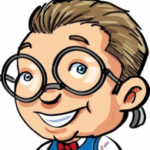- For Caregivers
- For Researchers
- Find A Support Organization
- Find Survivors
- First 6 Months
- Where to find help
- Memory loss
- "Eric Dodge thread"
- Our Tuesday "Bus Station" meeting
- Can expressive aphasia improve over time? I'm asking for my brother, he is 17 years old and he had his stroke on the 21st of August, the stroke affected his right side and the opposite side of his brain. so he can't speak he uses gestures to respond and his right side is not working.
- Challenges After Leaving the Hospital
- A few things about using the Strokefocus Forum
- Real Challenges
- Neurological Recovery
- Debt Relief
- As a separate note, in case you do not want to receive emails.
- Spasms
- tremor
- How do we find support from organizations
- Stroke prevention
- good morning I still have cramps on my hands
- recovery after 5 yrs.
- Palliative care for Stroke Survivors and their families in South Africa
- What's your best hack?
- International Stroke Day
- Am I too sensitive?
- finding work opportunities
- Nerve pain
- Finance
- Accepted? Or Tolerated?
- Kids will play a very big role
- Kids are the key
- First 6 months is crucial
- Guilt is my concern with the stroke
- Let's get real
- Stroke hereditary?
- Recovery
- Aphasia
- Looking for Love
- Aphasia: A loss of words, not thoughts
- Discs for the car
- Caregiver post
- Care Giving
- Please help me find a job as a caregiver I am a quliefied certified caregiver…
- Seeking employment
- Arm
- Support group
- Stroke Help and Wheelchair
- DRIVING
- Recovery
- Get involve and engange with stroke support organization
- Anyone from Zambia?
- Occupational Therapy Around Chatsworth Durban KZN
- Occupational Therapy Around Chatsworth
- Frustrated
- Issues of the mind.....
- Arm and Leg mobility
- Child supporting parent
- Arm and Leg mobility
- Therapy options
- Disability Benefits options
- Confused
- Staying positivr post STROKE
- Staying positivr post STROKE
- The new Dating forum
- Relationship
- Emotions
- Disability Benefits
- Mindfulness
- Mobility
- Sleeping
- Diet
- New Products
- Recipes
- First 6 Months
- Ask Pros
-
CreatorTopic
-
September 11, 2021 at 6:01 pm #40339
 Strokefocus AdminParticipant
Strokefocus AdminParticipantMy friend Gene is in the same Bible Study group. Gene is always there whenever someone needs help. His wife is my wife’s good friend.
But somehow meeting Gene is starting to make me miserable. Every time, Gene would ask about my stroke. As the conversation goes deeper, I would share my challenges such as fatigue, brain fog, muscle spasm and mobility issues. I would express my wish that one day I could magically walk like everyone else again.
Before I could finish, Gene would always rush to comment: But you look great! Without you telling me these, I could not see you having so many problems at all.
I know Gene means well, and I should not blame him for not knowing how painful hidden disabilities can be.
But my friend, do you really care what I have to say?
As survivors, we run into such subtle misunderstandings all the time. They wear us out.
Am I too sensitive? What is your experience? What can be done?
-
CreatorTopic
-
AuthorReplies
-
-
 Joyce HoffmanParticipant#56624
Joyce HoffmanParticipant#56624
December 10, 2022 at 11:18 amElinor says, “I am going to be more aware of this now” in regards to
overcomplimenting, or worse yet, false complimenting or inquiring about, a
stroke survivor. I am a stroke survivor so I know how it is.Talk about other things—a hobby, a visit, a cooking mistake. Stroke
survivors don’t like their condition and talking about it reinforces their
misery. Just for your visit, don’t ask. GOOGLE IT to learn more about
having a stroke! -
 Elinor LowryParticipant#56623
Elinor LowryParticipant#56623
December 10, 2022 at 3:44 amThank you so much for opening this topic. I am a family member of a stroke survivor, and I am going to be more aware of this now.
-
 Faeezah StorerParticipant#40384
Faeezah StorerParticipant#40384
September 16, 2021 at 2:10 pmThank you.
-
 Faeezah StorerParticipant#40373
Faeezah StorerParticipant#40373
September 15, 2021 at 1:30 amHi there,
I saw a person on the feed, asking about medication 1 800 mg epilim or,
epizartan or something he or she is taking. 1 800 mg a day I assume.
Initially, my dosage was a lot lower. I asked how I could reduce the
medication? The doctors are prescribing medication approximately 2 000 mg.
I was shocked. You should get a second opinion from a neurologist.I use alternative therapy with conventional medicine. I use acupuncture to
heal the nerve pain, massages, and tibb medication. I massage my legs in a
bath tub or I walk. Swimming I am told, is very good.Warm regards,
Faeezah -
 Faeezah StorerParticipant#40371
Faeezah StorerParticipant#40371
September 15, 2021 at 12:55 amDaniel, what is your biggest challenge to date and how are you overcoming
it?Warm regards,
Faeezah. -
 Faeezah StorerParticipant#40370
Faeezah StorerParticipant#40370
September 15, 2021 at 12:50 amHi Daniel,
The biggest challenge I’d say the physical, spiritual and emotional
challenges. I had help from my partner who is loving and unselfish person I
have ever known. God bless him. I had to learn from scratch who was in
charge. God. I was eager to learn. In my mind, I was a child. As an adult,
I’d see an incapacitated big body. I could not correlate the two. I think
mind over matter wins in the end for me. I navigated by watching cartoons,
or programmes what is pleasing to me for example, Disney classics or a love
story. Then, I went on to watch crime thrillers and mystery movies. It gave
me a sense of what am I dealing with. The reality of the world and the
people in it. I discovered that the good and the bad, and everything in
between.Warm regards,
Faeezah. -
 Strokefocus AdminParticipant#40367
Strokefocus AdminParticipant#40367
September 14, 2021 at 12:35 pmFaeezah, that was an incredible story. What was the biggest challenge you
dealt with in your journey of recovery, may I ask? -
 Faeezah StorerParticipant#40364
Faeezah StorerParticipant#40364
September 14, 2021 at 3:55 amHi Thobeka and Daniel,
I think that different personalities, albeit about their being quiet about
their pain or they want to help or give back. I want to talk by merely
helping people or you. That’s why I am on the discussion group. I have lots
of pain. From beginning to end. I felt it. My limbs were numb.Emotionally I
was deplete. I had a CVS stroke. Intellectually, I was devastated. I
crawled to the level I am at. My faith got me through it. I still cry to
God about what happened to me and what’s happening to me. I would like to
hear about muscle spasms and mobility. I would love to hear what exercises
do you do and your “stroke” diet. I’m starting to look like a little
dumpling. Please help. Any advice would be appreciated.Warm regards
Faeezah. -
 Strokefocus AdminParticipant#40363
Strokefocus AdminParticipant#40363
September 13, 2021 at 10:35 amThobeka, so nice to see you here. What are the challenges you would like to
bring up and share with this community?Many times, survivors do not like to talk about their challenges. What do
you think is causing this? What will make survivors more willing to open up? -
 Strokefocus AdminParticipant#40362
Strokefocus AdminParticipant#40362
September 13, 2021 at 10:35 amFaeezah, this is very thoughtful. Tell everyone more about you. What
brought you here?And some said survivors just do not want to share their thoughts. They do
not like discussing things related to them. Do you think this is true? What
are the topics you would like to see? Would you like to add topics that
interest you to this forum? -
 Thobeka MarumoParticipant#40355
Thobeka MarumoParticipant#40355
September 13, 2021 at 4:36 amI agree with George on this one, talking about how the statement makes you feel would maybe help Gene aware. I wouldn’t say you too sensitive, it’s just how you feel and that must be acknowledged. See how the talk goes
-
 Faeezah StorerParticipant#40354
Faeezah StorerParticipant#40354
September 13, 2021 at 3:55 amHi there,
Thank you for alerting to many stroke survivors about your experience/s.
Thank you to George for emailing me about this discussion.My contribution is about, “are we too sensitive…”. I am very very
sensitive. I’d say yes, in your situation. Perhaps, you could approach it
from a different perspective. Say, I’d change the camera lens. For you, I
see it through your eyes. I came out of the stroke as a tender 5 year old,
due to the consequences. I was realistically in my 40’s. I withdrew from
people. From all my friends and my family. I wasn’t yet ready to see them.
Perhaps they were laughing at me, some prayed for me. You may never know.
Some admire me from afar. I do not know what they are thinking. I let only
people who I am comfortable with.Maybe, your friend who comes to see how you are doing and goes away, pray
for you and cries behind your back. Cries to God, “Please restore him and
heal him.” You should your frustrations with your partner, your priest or
with a therapy group. I am very shy. The therapy group I could not handle
it at first. Now I can speak about it.Do it for yourself, every available opportunity to heal. There are some
days that don’t want to get up. Others, I am positive. Never, ever, stop
giving up on you or yourself.Kind regards,
Faeezah (stroke survivor).-
 Strokefocus AdminParticipant#40383
Strokefocus AdminParticipant#40383
September 16, 2021 at 1:16 pmFaeezah,
It is very interesting to know you also used acupuncture to help with your recovery.
The trickiest part of acupuncture is it is very hard to find a real good one who truly knows how to treat survivors. I found one in Los Angeles thanks to the help of Chinese American community. There are more than 8000 acupuncturists in Los Angeles and no more than 5 know how to handle stroke. (Do not trust what acupuncturists say in the ads)
Here is a video interview we made for this acupuncturist. Neil Yu is the one who introduced me to this acupuncturist:
-
-
George Scola
Participant#40349
September 12, 2021 at 7:44 amI think as survivors we can sometimes take things personally. Have you ever tried to have a conversation about how your friend’s statement or questions make you feel, because they are actually attempting to show empathy. We cannot expect non-survivors to fully understand the difficulties we experience and the level of pain and suffering, both physical and emotional, we have had to endure and overcome. If they continue to ignore how it makes you feel, then how you respond is entirely up to you, because you have given them the opportunity to try understand your side of the story and how their statements attempting to show support and care, actually become counter productive with your recovery.
-
 Joyce HoffmanParticipant#40340
Joyce HoffmanParticipant#40340
September 11, 2021 at 6:20 pmChange the subject to what YOU want to talk about! I always do that! Do it
awkwardly, right after he makes some statement, and maybe he’ll get the
hint after awhile. Answering someone who hasn’t had a stroke is brutal
repeatedly and Gene might learn a lesson.
-
-
AuthorReplies
- You must be logged in to reply to this topic.







